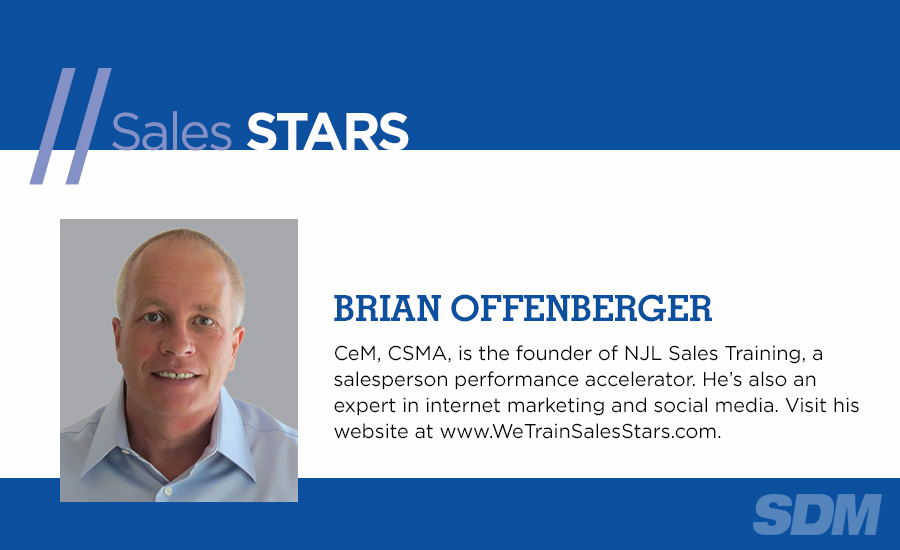Sales Stars
7 Tips for Boosting New Hire Productivity

Even if your hiring process brings you the right person, you can’t expect your new sales star to shine without an equally effective onboarding plan.
Employee onboarding is the process of training and integrating a new salesperson into your organization. For many companies, onboarding sales reps involves things like reviewing the employee handbook, attending orientation meetings and learning about products. In addition to those activities, I recommend sales training and engagement elements to acclimate your new sales star to his or her responsibilities and surroundings.
Most security industry companies don’t onboard reps effectively. They skip crucial onboarding elements, or simply neglect them. As one sales manager of an access control company told me, “I hire reps with industry experience, make sure they know our products and policies and turn them loose.”
If only it were that simple.
An effective onboarding process reduces turnover, and turnover is a costly proposition. A DePaul University study found sales rep turnover costs companies in excess of $97,000 in recruiting costs, training costs and lost sales.
Properly onboarding reps also boosts productivity. When Google implemented a more structured onboarding process encompassing all the right elements, they saw a 25 percent increase in productivity from new hires.
Your onboarding program should acclimate reps to your company, explain your company mission, and clearly define what is expected of the new rep. It should foster engagement and relationships with others on the team. It must lay the foundation for a successful relationship between the sales rep and your company so that you retain your talent.
Here are some strategies for onboarding new reps effectively:
- Understand capacity planning. If you need someone right away, you’re starting off on the wrong foot. The easiest way to effectively onboard someone is to hire them before you actually need them.
- Have a six month onboarding process. Your onboarding process should be designed and standardized for the long term. Onboarding is not a one week event. Make sure to include detailed instruction on your sales processes, buyer personas, vertical markets, etc.
- Have a detailed “roles and responsibilities” discussion. Make sure your rep clearly understands all job duties and outcomes for which they are responsible. Let them know your expectations regarding their behaviors and ethics, and what the new rep can expect from you and the organization.
- Write it down. New reps aren’t going to retain 100 percent of what they’ve been told. Record your onboarding materials in reference guides for ongoing use.
- Match your new rep with a peer buddy. Allowing new hires to shadow veterans can be a big help. But be careful; often, the best peer buddy is not the top performing sales rep. (We’ll talk more in my column next month about why top sales stars often make terrible sales managers.)
- Make successful onboarding your top priority. The biggest single mistake in successfully onboarding a new rep is not spending the proper amount of management time on the activity. Too many companies and managers give the rep a few days of training and then throw them into the pool and expect them to swim. The person responsible for onboarding the new rep should not have any single priority greater than the onboarding process.
Encourage an open dialog. Allow honest feedback from your new hire and those involved with the onboarding process. Be comfortable in opening your office to criticism, new ideas and concerns.
Looking for a reprint of this article?
From high-res PDFs to custom plaques, order your copy today!







